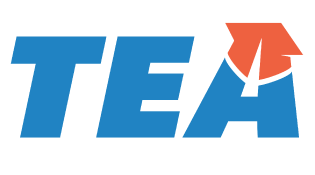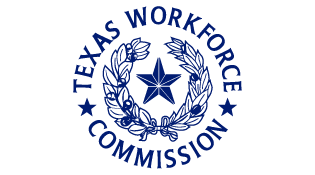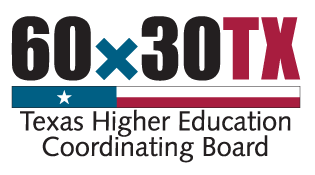The scholarship application process can often be just as cumbersome as the application process. During this webinar from January 2019, Texas OnCourse staff highlight helpful advising resources from the scholarship learning module in the Texas OnCourse Academy. These resources, together with information about scholarships at Texas A&M University and through the Jack Kent Cooke Foundation, will be helpful no matter when you view this webinar.
We are also joined by:
- Dawn D. Coleman-Glenn, training specialist from Texas A&M University, Scholarships & Financial Aid, who discusses the scholarship application process for A&M as well as the importance of FAFSA verification.
- Alan Royal, senior program manager of outreach and partnerships from the Jack Kent Cooke Foundation, who talks about the foundation’s Young Scholars and College Scholars Programs.
- Chansi Shope, Texas OnCourse leader fellow from Bridges Accelerated Learning Academy in Grapevine-Colleyville ISD, who discusses her tips and best practices for guiding students through the scholarship process.
For comprehensive, up-to-date information and resources on scholarships and financial aid, don’t forget to log in to the Texas OnCourse Academy.
Texas OnCourse Resources Spotlight
As counselors help students and families begin and complete the scholarship application process, the following infographics should aid those advising efforts.
Our Scholarship Basics for Educators page includes a overview of all things scholarship, including information about the QuestBridge Scholarship, National Merit Scholarship, College Board Opportunity Scholarship and more.
The Ten Steps to a Strong Scholarship Application infographic includes tips and reminders like drafting a good resume, requesting recommendation letters, writing general essays ahead of time and customizing them to fit individual applications, tracking due dates, and much more. This infographic can be found in our Scholarship Applications Module under Unit Five.
The 8 Strategies to Combat Verification Challenges infographic should help understand how huge of a barrier verification is to getting students to complete the financial aid process. This infographic shares important tips like helping students order a tax return transcript. You can visit unit 1 in our Academy Verification and Renewal of our FAFSA module to download the infographic today.
Scholarships at Texas A&M
Dawn D. Coleman-Glenn, training specialist from Texas A&M University, discussed scholarship requirements at A&M as well as FAFSA verification. A&M is the largest institution of higher education in Texas, with over 15,000 students in the 2018–19 freshman class.
ApplyTexas vs. the Coalition Application at A&M
Texas A&M accepts both the ApplyTexas and Coalition applications. During a student’s senior year, both applications open July 1 and are due by December 1. Once students have submitted their applications, they cannot make changes.
There are important differences between the two. ApplyTexas has separate modules for admissions and scholarships. Students can submit these modules separately and complete the scholarship module at a later date. As a best practice, Coleman-Glenn suggests that students complete and submit everything at the same time so they don’t forget to complete the scholarship module.
The Coalition application is a single, seamless application. There is a page of scholarship questions that a student completes at the same time they complete their admissions information. Students may opt out of completing these scholarship questions. Students should not submit the Coalition application until everything is complete.
A&M Scholarship Consideration Requirements
Here are the requirements for students to be considered for a scholarship at Texas A&M:
- Submit completed admission and scholarship applications, high school transcript, and test scores by deadlines.
- Essay A is required. Essay B is not required, but it will be read if a student submits it.
- The financial information section on the scholarship portion of the application is not required but strongly encouraged for need-based scholarships
- Do NOT send resumes, transcripts, or letters of recommendation to the Scholarships and Financial Aid Office
The Scholarship Consideration Process at A&M
After a student submits the required ApplyTexas or Coalition application, they are considered for six different scholarship pools. The pools are Endowed, Achievement, Century Scholars, Opportunity Awards, Terry Scholars, and Brown Scholars. Students are considered for one or more pools depending on their qualifications.
A&M also has a process for considering outside scholarships through a Student Data Form. This is a form every single student has in their Financial Aid Portal. If a student receives a scholarship outside of Texas A&M, the following should occur:
- The student reports non-TAMU scholarships awarded (not applied for) using the Student Data Form in the Financial Aid Portal.
- Entering external scholarship information in the Student Data Form creates a placeholder for that amount of money in the student’s financial aid package with the portal.
- This information will appear as Anticipated Aid.
- Institutional Scholarships are listed as well in the Awards tab.
The Scholarships and Financial Aid Office will conduct an email campaign in March to remind freshmen to report outside scholarships. All scholarship checks should be made payable to Texas A&M University and sent to Scholarships and Financial Aid.
FAFSA Information and Verification
As a reminder, the FAFSA and the TASFA are available each October for the next academic year. Students must use the tax information from the prior prior year – so for the 2019–20 award year, students would use 2017 tax information. Encouraging students to use the IRS Data Retrieval Tool (if eligible) reduces incorrect information. A FAFSA mobile app (myStudentAid) is available. The Data Retrieval Tool is also available on the app.
FAFSA Verification Steps, Data, and Reminders
Because it is such a large institution, a large number of students get selected for verification at A&M. Last fall, over 8,000 students were processed for verification. For this reason, Coleman-Glenn strongly advises students to use the IRS Data Retrieval tool.
Coleman-Glenn also asks you to please remind students to check their email and their portal frequently for communication from the school. The school provides students with examples, forms, and other specifics to assist in the verification process.
The tracking and verification process occurs in November and December. Tax transcripts – not tax returns – are required for FAFSA verification. To request a tax transcript, students should visit the IRS website and select “Get Your Tax Record.” They should then click on one of the two retrieval options and follow the instructions.
FAFSA verification is a long process. The steps include:
- FAFSA is processed by the Department of Education
- Student is selected for verification
- A&M notifies student regarding what documentation is needed
- Student submits required verification documents to the institution
- Financial aid office compares documents to FAFSA
- Financial aid office corrects information on FAFSA if needed
- Corrections sent to Department of Education for processing
- Department of Education recalculates EFC
- New SAR and ISIR sent to reflect new EFC
- Verification requirement is complete; awards may change
The information that the university verifies may include:
- Income earned from work
- Household size
- Number in college
- High school completion status
- Identity/statement of educational purpose
- Adjusted gross income (AGI)
- US income tax paid
- Education credits
- Untaxed IRA distributions
- Untaxed pensions
- IRA deductions and payments
- Tax-exempt interest
- Other untaxed income
Coleman-Glenn included some additional pointers for the verification process at Texas A&M:
- Students should not send any documents that are not requested in the portal. The SFA office needs to review everything submitted. If students send unnecessary documents, it will slow down the review process. Each student has specific documents requested based on their FAFSA data.
- Students should be proactive in following up on turning in documents.
- Standard processing times may be slow; remind students to check the portal frequently.
Jack Kent Cooke Foundation Scholarship Programs
Alan Royal, director of outreach and partnerships from the Jack Kent Cooke Foundation, talked about the foundation’s Young Scholars and College Scholars programs. The Cooke Foundation is a private grant and scholarship provider dedicated to advancing the education of promising students who have financial needs. The foundation is based in northern Virginia, and they select and support students from across the country. The Cooke Foundation has $190 million awarded in scholarships, 2,500 Cooke Scholars, and $100 million awarded in grants. The Cooke scholarship programs that he discussed include:
- The Young Scholars Program. A five-year, precollege scholarship open to high-performing seventh graders. Recipients develop an individualized learning plan each year in high school that is supported by an annual scholarship budget.
- The College Scholarship Program. Open to high-achieving high school seniors who have financial need and are seeking to attend the nation’s top four-year colleges and universities. Recipients can receive up to $40,000 per year.
- The Undergraduate Transfer Scholarship. Open to top community college students seeking to transfer to a four-year institution to complete their bachelor’s degree. Recipients can receive up to $40,000 per year.
The Cooke Foundation also has a hands-on approach to supporting Cooke Scholars versus just writing a check. In addition to the foundation, they offer personalized education advising to the scholars they select. They have an on-staff team of advisers who work with them on making the most of their academic and extracurricular experiences during their time in college.
The educational adviser’s role includes:
- Conducting regular check-ins and annual scholar visits.
- Helping navigate educational resources.
- Helping connect to a variety of educational enrichment opportunities.
- Creating academic support plans.
- Supporting the college or graduate school application process.
Another aspect of the programs is the community of Cooke Scholars, a thriving community of active students. Cooke Scholars attend colleges and universities spanning the country and globe. Each year, the foundation hosts a Scholars Weekend event attended by approximately 300 Cooke Scholars.
Young Scholar Program
The Young Scholar Program is about to open soon. The eligibility requirements listed are to help determine whether a student might be a good fit to apply.
- Entering eighth grade in the fall of 2019.
- Has earned all or mostly A’s in core academic subjects in sixth and seventh grade.
- Submission of most recent standardized test scores.
- Residing in the US or a US territory and planning to attend high school in the US.
- Demonstrates unmet financial need.
College Scholar Eligibility
The College Scholars Program requirements are slightly different, but the general student profile is the same. It is looking for talented, motivated students who are doing well academically but have financial obstacles. Eligibility details include:
- Graduating from a US high school in spring 2020.
- Enrolling in a four-year college in fall 2020.
- Cumulative unweighted GPA of 3.5 or above.
- SAT score of 1200+ or ACT score of 26+.
- Demonstrates unmet financial need.
When considering a candidate for the program, selection criteria includes high academic achievement, persistence, leadership, service to others, and unmet financial need. The Jack Kent Cooke Foundation is also a “member college” on the Common Application and uses the Common App platform to host their Cooke College Scholarship application.
Scholarship and Financial Aid Presentations
Texas OnCourse leader fellow Chansi Shope from Grapevine-Colleyville ISD discusses her tips and best practices for guiding students through the scholarship process. Her district uses Texas OnCourse resources for scholarships and financial aid presentations. Her tips include:
- Reference the Texas OnCourse Academy modules on scholarships and financial aid for comprehensive resources.
- Share Texas OnCourse PDFs and other resources with students and families through the Texas OnCourse Pinterest account.
- Find resources for DACA and undocumented students through:
- College Greenlight.
- Repository of resources for undocumented students in the Academy’s Scholarship Application module.
- Create a virtual financial aid night using the above resources, websites, and downloadable PDFs.






